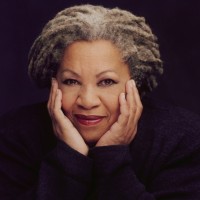Top 10 Nobel Prize Laureates in Literature
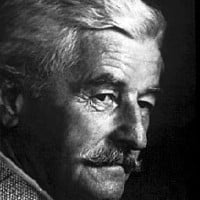 William Cuthbert Faulkner (September 25, 1897 – July 6, 1962) was an American writer and Nobel Prize laureate from Oxford, Mississippi. Faulkner wrote novels, short stories, a play, poetry, essays, and screenplays. He is primarily known for his novels and short stories set in the fictional Yoknapatawpha County, based on Lafayette County, Mississippi, where he spent most of his life.
William Cuthbert Faulkner (September 25, 1897 – July 6, 1962) was an American writer and Nobel Prize laureate from Oxford, Mississippi. Faulkner wrote novels, short stories, a play, poetry, essays, and screenplays. He is primarily known for his novels and short stories set in the fictional Yoknapatawpha County, based on Lafayette County, Mississippi, where he spent most of his life.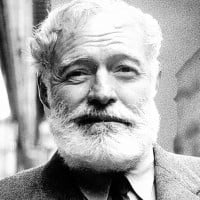 Ernest Miller Hemingway (July 21, 1899 – July 2, 1961) was an American novelist, short story writer, and journalist. His economical and understated style had a strong influence on 20th-century fiction, while his life of adventure and his public image influenced later generations. Hemingway produced most of his work between the mid-1920s and the mid-1950s, and won the Nobel Prize in Literature in 1954.
He published seven novels, six short story collections, and two non-fiction works. Additional works, including three novels, four short story collections, and three non-fiction works, were published posthumously. Many of his works are considered classics of American literature.
Ernest Miller Hemingway (July 21, 1899 – July 2, 1961) was an American novelist, short story writer, and journalist. His economical and understated style had a strong influence on 20th-century fiction, while his life of adventure and his public image influenced later generations. Hemingway produced most of his work between the mid-1920s and the mid-1950s, and won the Nobel Prize in Literature in 1954.
He published seven novels, six short story collections, and two non-fiction works. Additional works, including three novels, four short story collections, and three non-fiction works, were published posthumously. Many of his works are considered classics of American literature. He definitely deserved it
 Joseph Rudyard Kipling (December 30, 1865 – January 16, 1936) was an English journalist, short-story writer, poet, and novelist. He was born in India, which inspired much of his work.
Kipling's works of fiction include The Jungle Book, Kim, and many short stories, including "The Man Who Would Be King". His poems include "Mandalay", "Gunga Din", "The Gods of the Copybook Headings", "The White Man's Burden", and "If—".
Joseph Rudyard Kipling (December 30, 1865 – January 16, 1936) was an English journalist, short-story writer, poet, and novelist. He was born in India, which inspired much of his work.
Kipling's works of fiction include The Jungle Book, Kim, and many short stories, including "The Man Who Would Be King". His poems include "Mandalay", "Gunga Din", "The Gods of the Copybook Headings", "The White Man's Burden", and "If—". John Ernst Steinbeck, Jr. was an American author of twenty-seven books, including sixteen novels, six non-fiction books, and five collections of short stories.
John Ernst Steinbeck, Jr. was an American author of twenty-seven books, including sixteen novels, six non-fiction books, and five collections of short stories. A bit enigmatic, but at bottom, seems to have been a left-leaning liberal who stopped short of embracing communism, mindful still of his close association with and endorsement by the communist movement in America. Think, however, that "East Of Eden" was sophomoric in its transparently veiled parody of Genesis, and probably the first major fictional work (and film) to give wide exposure to a post-Nietzschean agenda of literati and intelligentsia mocking and vilifying Christianity, which is reaching crescendo today.
 Thomas Stearns Eliot, OM, (26 September 1888 – 4 January 1965) was an American-born British essayist, publisher, playwright, literary and social critic, and one of the 20th century's major poets.
Thomas Stearns Eliot, OM, (26 September 1888 – 4 January 1965) was an American-born British essayist, publisher, playwright, literary and social critic, and one of the 20th century's major poets.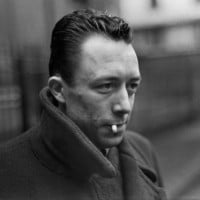 Albert Camus (7 November 1913 – 4 January 1960) was a French philosopher, author, and journalist. He is best known for such novels as L’Étranger (The Stranger, 1942), La Peste (The Plague, 1947), and La Chute (The Fall, 1956). He received the 1957 Nobel Prize for Literature.
Albert Camus (7 November 1913 – 4 January 1960) was a French philosopher, author, and journalist. He is best known for such novels as L’Étranger (The Stranger, 1942), La Peste (The Plague, 1947), and La Chute (The Fall, 1956). He received the 1957 Nobel Prize for Literature.
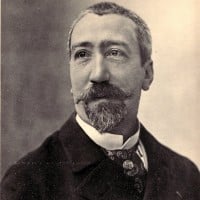 Anatole France, born François-Anatole Thibault (16 April 1844 – 12 October 1924), was a French poet, journalist, and novelist.
He was a successful novelist, with several best-sellers. Ironic and skeptical, he was considered in his day the ideal French man of letters.
He was a member of the Académie française, and won the 1921 Nobel Prize in Literature "in recognition of his brilliant literary achievements, characterized as they are by a nobility of style, a profound human sympathy, grace, and a true Gallic temperament".
Anatole France was also documented to have a brain volume just two-thirds the normal size.
Anatole France, born François-Anatole Thibault (16 April 1844 – 12 October 1924), was a French poet, journalist, and novelist.
He was a successful novelist, with several best-sellers. Ironic and skeptical, he was considered in his day the ideal French man of letters.
He was a member of the Académie française, and won the 1921 Nobel Prize in Literature "in recognition of his brilliant literary achievements, characterized as they are by a nobility of style, a profound human sympathy, grace, and a true Gallic temperament".
Anatole France was also documented to have a brain volume just two-thirds the normal size.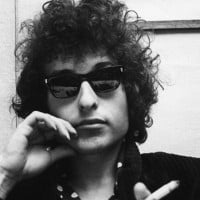 Bob Dylan is an American singer-songwriter, author, and artist who has been an influential figure in popular music and culture for more than five decades.
Bob Dylan is an American singer-songwriter, author, and artist who has been an influential figure in popular music and culture for more than five decades. Also definitely deserved it
 Gabriel José de la Concordia García Márquez (6 March 1927 – 17 April 2014) was a Colombian novelist, short-story writer, screenwriter and journalist.
Considered one of the most significant authors of the 20th century and one of the best in the Spanish language, he was awarded the 1972 Neustadt International Prize for Literature and the 1982 Nobel Prize in Literature.
Gabriel José de la Concordia García Márquez (6 March 1927 – 17 April 2014) was a Colombian novelist, short-story writer, screenwriter and journalist.
Considered one of the most significant authors of the 20th century and one of the best in the Spanish language, he was awarded the 1972 Neustadt International Prize for Literature and the 1982 Nobel Prize in Literature. A close friend of Fidel Castro. This and this alone destroys all credibility regarding any of his "works," and highlights the fact that since it's inception, the Nobel "committee" has been nothing more than a "legitimizing" imprimatur for global communism.
 Salvatore Quasimodo was a Sicilian novelist and poet. In 1959 he won the Nobel Prize in Literature "for his lyrical poetry, which with classical fire expresses the tragic experience of life in our own times".
Salvatore Quasimodo was a Sicilian novelist and poet. In 1959 he won the Nobel Prize in Literature "for his lyrical poetry, which with classical fire expresses the tragic experience of life in our own times".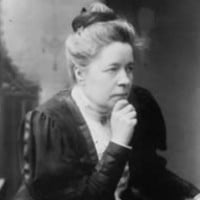
 Samuel Barclay Beckett (13 April 1906 – 22 December 1989) was an Irish avant-garde novelist, playwright, theatre director, and poet, who lived in Paris for most of his adult life and wrote in both English and French. He is widely regarded as among the most influential writers of the 20th century.
Samuel Barclay Beckett (13 April 1906 – 22 December 1989) was an Irish avant-garde novelist, playwright, theatre director, and poet, who lived in Paris for most of his adult life and wrote in both English and French. He is widely regarded as among the most influential writers of the 20th century. Paul Thomas Mann was a German novelist, short story writer, social critic, philanthropist, essayist, and the 1929 Nobel Prize in Literature laureate.
Paul Thomas Mann was a German novelist, short story writer, social critic, philanthropist, essayist, and the 1929 Nobel Prize in Literature laureate.
 Henryk Adam Aleksander Pius Sienkiewicz was a Polish journalist, novelist and Nobel Prize laureate. He is best remembered for his historical novels, especially for his internationally known best-seller Quo Vadis.
Henryk Adam Aleksander Pius Sienkiewicz was a Polish journalist, novelist and Nobel Prize laureate. He is best remembered for his historical novels, especially for his internationally known best-seller Quo Vadis.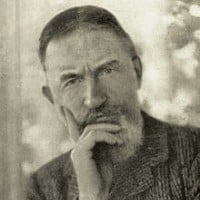 George Bernard Shaw, known at his insistence simply as Bernard Shaw, was an Irish playwright, critic, polemicist, and political activist. His influence on Western theatre, culture and politics extended from the 1880s to his death and beyond.
George Bernard Shaw, known at his insistence simply as Bernard Shaw, was an Irish playwright, critic, polemicist, and political activist. His influence on Western theatre, culture and politics extended from the 1880s to his death and beyond.
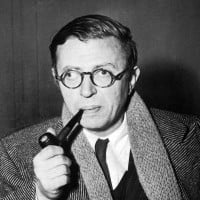 Jean-Paul Charles Aymard Sartre (June 21, 1905 – April 15, 1980) was a French philosopher, playwright, novelist, political activist, biographer, and literary critic.
Jean-Paul Charles Aymard Sartre (June 21, 1905 – April 15, 1980) was a French philosopher, playwright, novelist, political activist, biographer, and literary critic. "I do not believe in God; his existence has been disproved by science." Here Sartre has violated a basic tenet of logic: a negative cannot be proved. One can prove only that something DOES exist, never that it DOESN'T. His statement is a patent falsehood, then as now.
 Aleksandr Isayevich Solzhenitsyn (December 11, 1918 - August 3, 2008) was a Russian novelist, philosopher, historian, short story writer and political prisoner. Solzhenitsyn was an outspoken critic of the Soviet Union and Communism and helped to raise global awareness of the Soviet Gulag forced-labor camp system.
Aleksandr Isayevich Solzhenitsyn (December 11, 1918 - August 3, 2008) was a Russian novelist, philosopher, historian, short story writer and political prisoner. Solzhenitsyn was an outspoken critic of the Soviet Union and Communism and helped to raise global awareness of the Soviet Gulag forced-labor camp system.
 Sir Winston Leonard Spencer-Churchill was a British statesman who was the Prime Minister of the United Kingdom from 1940 to 1945 and again from 1951 to 1955. Churchill was also an officer in the British Army, a historian, and a writer.
Sir Winston Leonard Spencer-Churchill was a British statesman who was the Prime Minister of the United Kingdom from 1940 to 1945 and again from 1951 to 1955. Churchill was also an officer in the British Army, a historian, and a writer.
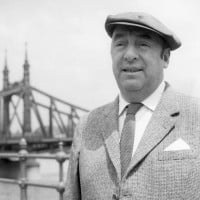 Pablo Neruda was the pen name and, later, legal name of the Chilean poet-diplomat and politician Ricardo Eliécer Neftalí Reyes Basoalto (July 12, 1904 – September 23, 1973), he won the Nobel Prize for Literature in 1971.
Pablo Neruda was the pen name and, later, legal name of the Chilean poet-diplomat and politician Ricardo Eliécer Neftalí Reyes Basoalto (July 12, 1904 – September 23, 1973), he won the Nobel Prize for Literature in 1971.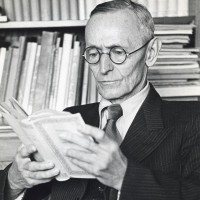 Hermann Karl Hesse (2 July 1877 – 9 August 1962) was a German-born Swiss poet, novelist, and painter.
Hermann Karl Hesse (2 July 1877 – 9 August 1962) was a German-born Swiss poet, novelist, and painter. William Butler Yeats (13 June 1865 – 28 January 1939) was an Irish poet and one of the foremost figures of 20th-century literature. He was awarded the Nobel Prize in Literature in 1923.
William Butler Yeats (13 June 1865 – 28 January 1939) was an Irish poet and one of the foremost figures of 20th-century literature. He was awarded the Nobel Prize in Literature in 1923.